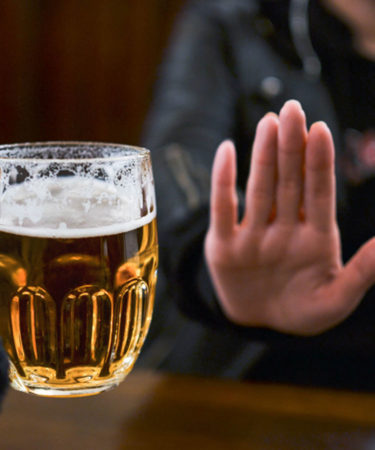At least three major brewing companies announced new non-alcoholic versions of their classic brands in 2019: Anheuser-Busch InBev’s Leffe in Belgium; Heineken’s 0.0 in the U.S. (it successfully launched in Europe in 2017); and Pabst Brewing’s new Pabst Blue Ribbon Non-Alc, and PBR Easy, a lower-cal, lower-ABV version of the original brew.
Big Beer isn’t the only one betting on booze-free brews. Brooklyn Brewery released an alcohol-free beer in Sweden in December. Several breweries in the U.S. are exclusively brewing non-alcoholic beer, including Athletic Brewing of Stratford, Conn., Wellbeing Brewing of St. Louis, Mo., and Surreal Brewing of Campbell, Calif.
Radeberger Gruppe’s Clausthaler, in Germany, has been devoted to brewing non-alcoholic beers since 1979. (They’re actually quite tasty – there’s even an on-trend, dry-hopped version!)
Personally, I prefer my beer alcoholic. But I see the value in non-alcoholic options. As VinePair reported last month, health and wellness is gripping America, including the beverage world. Millennials are drinking less alcohol than generations before them (their loss). Low- and no-proof cocktails and spirits are making a splash at trendy, forward-thinking bars across the country.
At present, non-alcoholic beer sales only account for 0.3 percent of total off-premise beer sales in the U.S. — that’s about $80 million of a $29 billion beer market, according to Nielsen. But, worldwide, the category is expected to double to about $25 billion in the next five years.
Boozeless beer won’t be most drinkers’ cup of tea. But as consumers focus on health and wellness, CBD beverages proliferate in the marketplace, and cannabis continues to be legalized, non-alc is an interesting avenue for brewers of all sizes to explore to stay competitive.
The Kentucky Derby’s ‘Official Craft Beer’ Is… MillerCoors’ Blue Moon
MillerCoors announced last Friday that Blue Moon will be “the official craft beer of the Kentucky Derby and the first-ever craft beer sponsor of Churchill Downs Racetrack.”
As part of a multi-year deal, Blue Moon will hold exclusive sponsorship rights at Churchill Downs, as well as open the Blue Moon Taproom & Balcony, serving Blue Moon products at the racetrack, including special offerings brewed at the brand’s Denver brewery.
Cue the sound of craft beer die-hards scoffing, and the rest of the world not hearing us over the din of the race or their sloshing pints.
I’m not shocked that this happened. Blue Moon was born in a sports stadium, after all (Coors Field in Denver at the Sandlot Brewery). MillerCoors was born to dominate smaller companies. It’s the combined forces of Miller and Coors, formally the world’s two most powerful breweries after Anheuser-Busch. It owns more than 50 brands, and is itself owned by an even bigger company, Molson Coors. It makes sense that it would win the race to a stadium sponsorship.
Of course, a better choice for Churchill Downs might have been a local Kentucky brewery. There’s Braxton Brewing, of Covington, which was recently named the official beer sponsor of Churchill Downs’ 2018 Breeders’ Cup World Championships. Against the Grain, a Louisville local also raised in a stadium (the brewery is located mere feet from Louisville Slugger Field), would be cool. Hell, there are at least 40 to pick from.
Boston Beer victoriously overtook Budweiser as the official beer of the Red Sox last year. Goose Island became the official beer of Wrigley Field last year. (Admittedly, it’s owned by the world’s largest brewing company, Anheuser-Busch, but at least it has a brewery in Chicago).
Blue Moon gets to call itself Kentucky’s craft beer without being Kentucky-born or “craft,” according to some. It’s a bummer for local brewers, but it’s life.
At the end of the day, it’s up to consumers to educate themselves on what they’re drinking at the stadium. If they order Blue Moon, and think it’s craft beer, and think it tastes good, I’m happy for them. Maybe the next time they encounter a wheat beer, or someone tells them a beer “tastes like Blue Moon,” they’ll try it and like it, too.
Hazy, Juicy Lawsuit Brews Between New England IPA Makers
Two of the nation’s most coveted craft breweries, Hill Farmstead of Greensboro, Vt., and Tired Hands of Ardmore, Pa., are entangled in a juicy lawsuit, Good Beer Hunting reports.
Hill Farmstead founder Shaun Hill and two associates are suing Tired Hands over alleged unpaid returns on investments. According to the lawsuit (Exhibit A: the original complaint filed in May 2018), Hill and two other parties allege their initial $5,000 investments in Tired Hands for a 0.5 percent equity stake in the company was not paid in the agreed-upon timeline. The complaint further alleges that Tired Hands founders Jean Broillet and Julie Foster offered to repay the investment for $7,500, but that was “far below fair market value,” GBH reports.
These are hazy days in the craft beer industry. The owners of these two breweries previously brewed beer together, participated in festivals together, and heck, Hill Farmstead even posted this cute photo album, “A Visit from Tired Hands Brewery,” on its website in 2012.
Sometimes, when success comes knocking, things get complicated. It’s sad to see two of New England’s most beloved brewers in a financial spat. I certainly hope they can work things out. But lawsuits between brewers are nothing new. In recent years, we’ve seen both Pabst and Stone sue MillerCoors, Lagunitas sue Sierra Nevada, and Shipyard sue Logboat.
With so many players on the playground, I worry it’s impossible not to trip each other up these days. Friendly collaboration may be at craft brewing’s core, but, now more than ever, beer is a serious business.
